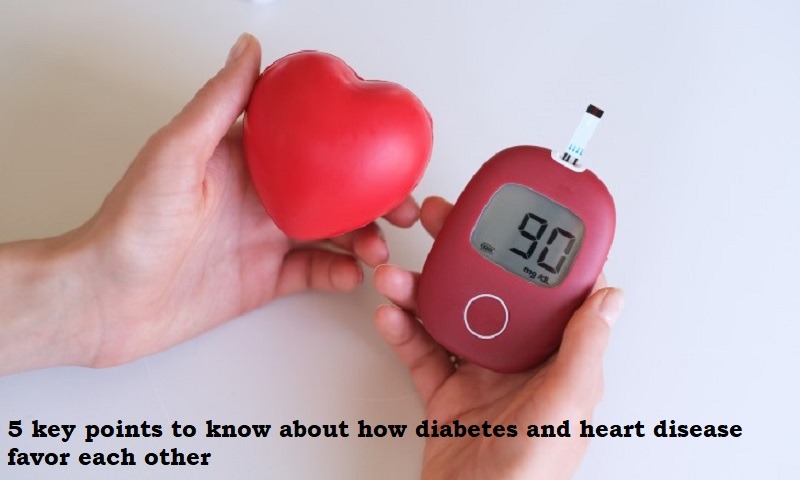
The two significant problems that are mentioned in every health conversation are diabetes and heart disease. The majority of people between the ages of 40 and 50 can be seen worried about and/or dealing with one of these complications, or difficulties that result from these conditions.
Diabetes and heart disease are tightly linked, despite the perception that they are only peripherally related.
How does diabetes affect the heart?
1. High blood sugar damages the blood vessels. This affects the blood flow and hence puts the heart at extreme risk.
2. The blood sugar decreases the elasticity of the blood vessels. This causes macrovascular disease or damage to large blood vessels and microvascular disease or damage to small blood vessels.
3. Macrovascular disease leads to heart attack, stroke and peripheral arterial disease.
4. Microvascular disease leads to damages in the eyes, kidneys and nervous systems.
Majority of people with type 2 diabetes develop cardiovascular disease. Cardiovascular disease is common among people with diabetes, especially those with type 2 diabetes.
The Indian Council of Medical Research (ICMR) advises diabetic people to undergo heart disease screenings. The ICMR recommendations state that long-term consequences such as retinopathy, nephropathy, neuropathy, peripheral vascular disease (PVD), and coronary artery disease (CAD) should be screened for at least once a year, and more frequently if necessary.
One of the most important risk factors for heart failure is type 2 diabetes.
According to a research study from 2021 that was published in the journal Cardiovascular Diabetology, heart failure frequently presents as the first cardiovascular event in persons with type 2 diabetes.
Diabetes is also listed by the World Health Organization (WHO) as a possible risk factor for heart failure. According to the WHO, those with diabetes have a two- to three-fold higher risk of heart attacks and strokes. The nerves in the feet are also damaged by the decreased blood flow, increasing the risk of foot ulcers, infections, and diabetic retinopathy, which affects the nerves in the eyes.
How to reduce the risk of heart disease?
1. People who are diabetic should be extra careful about their health. The risk of cardiovascular disease can be reduced by:
2. regularly checking the blood sugar level
3. engage in physical activity to bring down the blood sugar level if it is too high
4. regular check up of blood pressure and cholesterol level
5. follow doctor’s advice if blood pressure/ cholesterol is too high
6. eat a healthy and seasonal diet
7. quit smoking
8. cut down alcohol consumption

Post Your Comments